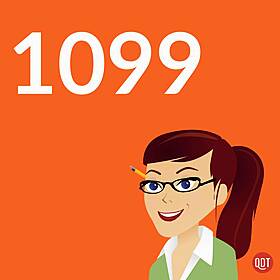
Pop, soda, or coke? When Q stands alone. Pizza bones.
15 July - 15 mins1099. Do you call it "pop," "soda," or "coke"? We look at the interesting history behind these regional names for carbonated beverages. Then, we look at words where you can use a Q without a U, which might help your Scrabble game.
The pop, soda or coke segment was written by Valerie Fridland, a professor of linguistics at the University of Nevada in Reno and the author of "Like Literally, Dude: Arguing for the Good in Bad English." It originally appeared in The Conversation and appears here through a Creative Commons license. You can find Valerie at valeriefridland.com.
The Q segment was written by Karen Lunde, a career writer and editor. In the late '90s, as a young mom with two kids and...

How 'algospeak' is changing language, with Adam Aleksic
1100. This week, we talk with popular online linguist Adam Aleksic, also known as Etymology Nerd. We discuss "algospeak" and how social media algorithms are changing language. We discuss euphemisms like "unalive," the spread of trending words, and how content creators adapt their speech to go viral.
25 mins
17 July Finished

Metaphors and your brain. How figurative language works, with Dr. Vicky Lai
1098. We talk with cognitive scientist Dr. Vicky Lai about how frequently we use metaphors and what happens in our brains when we hear them. We also look at her research on irony and its effect on emotion, and how people recovering from cancer use metaphors differently depending on how they're doing.
19 mins
10 July Finished

Can you have a million bacons? Martha's Vineyard's unique sound.
1097. Do you wonder whether "bacon" can be plural? We look at the difference between countable and uncountable nouns. Then, we look at how the Martha's Vineyard accent developed and what it tells us about language and society.
17 mins
8 July Finished

The surprising history (and politics) of emoji, with Keith Houston
1096. This week, we look at the world of emoji with Keith Houston, author of "Face with Tears of Joy." He discusses the long history of emoji, from ancient origins to early computer character sets, and the formal process of proposing new emoji to the Unicode Consortium. We also look at how emoji can be blends of multiple characters and tell us more about cultural, generational, and political attitudes.
28 mins
3 July Finished

Is ‘sick’...good? What we think of posh language and class. Misunderseed
1095. Is “sick” really “good”? This week, we look at how words flip their meanings and why language changes over time. Then, we look at the 1950s idea of "U and Non-U English" and what it tells us about social climbing.
17 mins
1 July Finished





















